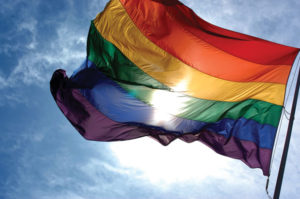 Following the U.S. Supreme Court’s legalization of marriage equality nationwide, author Reza Aslan and comedian and “Daily Show” correspondent Hasan Minhaj urged their fellow Muslims to celebrate the decision in an open letter.
Following the U.S. Supreme Court’s legalization of marriage equality nationwide, author Reza Aslan and comedian and “Daily Show” correspondent Hasan Minhaj urged their fellow Muslims to celebrate the decision in an open letter.
Published on ReligionDispatches.org, they urge their fellow Muslims to do the right thing–really the Muslim thing, as they put it–and stand up “for marginalized communities, even when you disagree with them.”
Unlike many other religious minorities, white evangelical Christians are afforded the privilege of spewing (and bankrolling off) hate anti-LGBT language.”Sure Rick Santorum and Mike Huckabee can call the Supreme Court decision the precursor to the End of Days and the final battle of Armageddon. But if you try saying something like that on TV you may end up in Guantanamo. You may not like the Supreme Court’s decision but you’re willing to tolerate it,” even if the legal ruling violates one’s religious beliefs.
“We Muslims are already a deeply marginalized people in mainstream American culture. More than half of Americans have a negative view of us. One-third of Americans—that’s more than one hundred million people—want us to carry special IDs so that they can easily identify us as Muslim. [emphasis mine] We shouldn’t be perpetuating our marginalization by marginalizing others. Rejecting the right to same-sex marriage, but then expecting empathy for our community’s struggle, is hypocritical.”
According to the Public Religion Research Institute, 42 percent of Muslim Americans support marriage equality.
The thoughtful piece stands out for a few reasons. For one, they acknowledge the crucial need for intersectionality, otherwise the belief activists from other social movements for equality and recognition collaborate with one another. For another, they know it’s still difficult being Muslim not just in a non-Muslim majority country, but the United States in particular.
As someone impacted by the marriage equality ruling and member of another religious minority (the Religious Society of Friends), it’s necessary to share this call to action. Not just because it’s a Muslim thing or Christian thing or moral thing, but the right thing. As members of the LGBT community we transcend race, class, gender, and values. But like our fellow Muslims, we share a history of injustice and discrimination as well.















